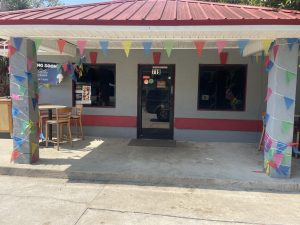Students protest for change
April 21, 2015
Monday April 20, a group of concerned students sat in the Marvin Pittman Administration building to ask to talk with President Keel about racial issues and disparities in faculty and staff diversity.
The goal of these students was to sit in the president’s office from 12:30 p.m. to 2:30 p.m. Monday and today until they could meet with the president. President Keel did show up around 2:00 p.m. despite being at home sick, Keel came in to try and solve this issue.
“The spark for our discussion was Chris Pugh being fired but we had issues before then. That’s just what got us going,” Ashley Mattison, senior multimedia communications major, said.
A letter to President Keel had been in the works since February so it was a big surprise when he showed up at the meeting.
“There is a process we have to follow,” Brooks Keel, Georgia Southern University president, said. “If there’s a student problem, go to Dean Jackson. If there’s a faculty problem, go to the provost.”
The students had felt ignored and brushed off because a definite meeting time to address issues had not been set. They said staff had told them, “I understand what you’re saying but I can’t meet with you” or “A meeting is impossible.”
“We’ve given the formal process a fair opportunity but giving time for the process is an issue. Many of us are seniors so how do we know this will be resolved when we are gone? It’s a constant cycle between the spark being lit, working on the issue, it dying out and then class letting out,” James Major Woodall, senior political science major said.
“Students feel like they can’t speak up for fear of not getting a position because they’re standing up for something,” Mattison said.
The students feel they do not have professors or administrators they can relate to or that can relate to them.
“We don’t want to call anyone or the university racist, that’s not what we want. We just want to be heard and we feel like we’re not,” Major said.
Patrice Jackson, Dean of Students, said that explicit examples were not brought forward and, until that is done, little can be done to solve the racial problem students want to address.
Suggestions to address the problem involved a campus climate survey to allow students to voice whether or not they feel accepted on campus by their professors and peers as well as sensitivity and diversity training for faculty and staff.







